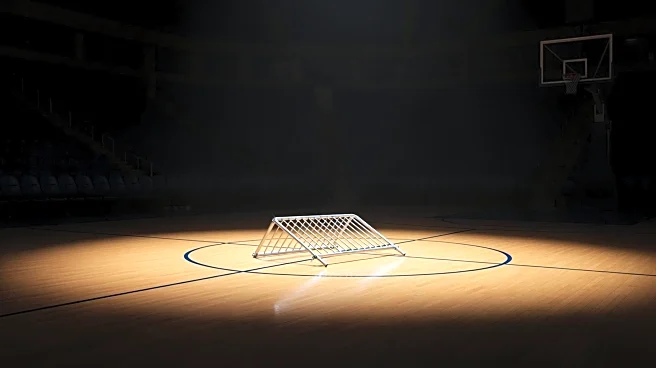Rapid Read • 7 min read
A legal battle is unfolding in California as lawyers for President Trump and Governor Gavin Newsom prepare to face off in court. The dispute centers around President Trump's decision to deploy the National Guard to Los Angeles in response to protests against immigration raids. Governor Newsom argues that this action violated the Posse Comitatus Act and the 10th Amendment, as it was done without state consent. Trump's legal team contends that the deployment was lawful under a rarely invoked statute allowing federalization of the National Guard during times of rebellion or invasion. The trial, presided over by Judge Charles R. Breyer, will examine whether the President overstepped his authority in deploying military forces domestically.
AD
This case is significant as it tests the limits of presidential power in deploying military forces within the United States. The outcome could set a precedent for future use of the National Guard in domestic situations, impacting federal-state relations and the balance of power. If the court sides with Newsom, it may restrict presidential authority in similar scenarios, reinforcing state sovereignty. Conversely, a ruling in favor of Trump could expand executive power, potentially leading to more frequent military involvement in domestic affairs. The decision will be closely watched by legal experts and policymakers, given its implications for constitutional law and civil liberties.
The trial is scheduled to take place in San Francisco, with proceedings expected to last several days. Both sides will present their arguments, focusing on the interpretation of the Posse Comitatus Act and the 10th Amendment. Witnesses, including military officials, will testify about the deployment's impact and legality. The court's decision could lead to further legal challenges or legislative action to clarify the scope of presidential powers. Stakeholders, including civil rights groups and state governments, may react based on the trial's outcome, influencing public discourse on federal authority and state rights.
AD
More Stories You Might Enjoy












